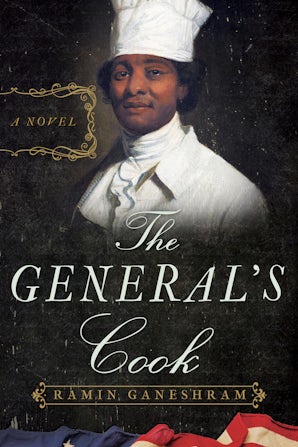An interview with Henry Wiencek: Slaves and Slavery in George Washington’s World
Common-Place: Common Reading
Volume 6, Number 4
July 2006

William Costin (c. 1780-1842), the Washingtons’ mixed-race grandson/nephew. He was the son of Ann Dandridge, enslaved half sister of Martha Washington, and Jacky Custis, Martha’s son. Courtesy of the Library of Congress, Prints and Photographs Division. |
Henry Wiencek is the author of the acclaimed “An Imperfect God: George Washington, His Slaves, and the Creation of America” (2003), winner of the Los Angeles Times Book Prize in history and the Best Book of 2003 award from the Society for Historians of the Early American Republic. He has also written The Hairstons: An American Family in Black and White (1999), which received the 1999 National Book Critics Circle Award. In the spirit of rereading, this issue’s Common Reading asks Wiencek to talk about his work on Washington and slavery and to reflect on some of the ways it revises received wisdom about the American past.
…Common-place: It seems clear from “Imperfect God” that you learned a great deal from genealogists. For historians working inside the academy, this might seem striking. How was it that you came to be interested in genealogy as a way of addressing larger historical questions about race and slavery?
Henry Wiencek: When I researched my previous book, The Hairstons: An American Family in Black and White, I could not avoid genealogy and genealogists. That book focused on one extended family with a black side, a white side, and family genealogists on every side trying to reconstruct a lost/hidden past. In several instances I came across documents indicating hidden or forgotten blood ties between the whites and blacks. You can’t avoid finding that kind of information if you’re studying plantation families. It happened everywhere and the evidence is thick on the ground—wills, gifts of land, odd emancipations, payments for education, favored treatment for particular people. I had so many of these stories from Hairston documents and oral history that I couldn’t put them all into the book. And after the book came out more people called or wrote to me about other instances. The other part of this is you have to be careful in evaluating this information—not everything is at it seems.
When you encounter evidence of kinship between owners and slaves you have, first of all, learned something new about the complexity of their world, and next you are confronted with the question: did knowledge of his or her kinship to slaves influence the actions of an owner? Martha Washington‘s first father-in-law, John Custis, all but acknowledged his mixed-race son, freed him, and gave him a very generous bequest. In contrast, Martha held her own half sister in slavery. The existence of this half sister, Ann Dandridge, was one of the great shocks of my research, and I discovered her only because genealogists had written to Mount Vernon about Dandridge and their letters were in the files. I pursued the leads in that correspondence and came up with additional evidence. So through the work of genealogists I came up with information that completely changed our view of what slavery was like at Mount Vernon…
…As to “genealogy as a way of addressing larger historical questions about race and slavery”—genealogy teaches us that many white colonial families had mixed-race kin. It would be fascinating to consult Virginia‘s African American genealogists and see how many of them can trace their families back to leading white families such as the Carters, Lees, Byrds, Randolphs, et al. (Right now I can say “yes” to three of those names—I don’t know about the Byrds, but they’re related to the Custises, so I guess they’d be a “yes” too.) That would give us a sense of how closely entwined these leading families were with slaves. Reading the accounts of the very peculiar, very intense relationship between Landon Carter and his slave Nassau, I have wondered if they were half brothers. My point is that, in public statements, the white male leadership of colonial Virginia reviled miscegenation, and we have come to believe that they were genuinely revolted by race mixing. Then how could these same men so avidly practice it? If they were disgusted by mixed-race people, how could the masters and mistresses of the era staff their houses with mulattoes? Wouldn’t you expect mulattoes to be shunned, exiled? Jefferson is a prime example. He spoke forcefully against racial mixing, but his entire household staff consisted of mulatto and all-but-white slaves, many of whom were his relatives. My thinking is that, to some degree, this eighteenth-century racial-purity talk was smokescreen and rationalization for outsiders. It’s an extremely complex issue….
Read the entire interview here.







